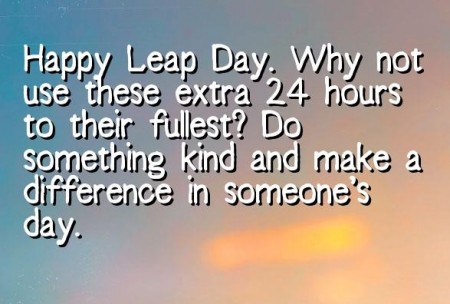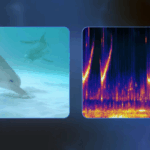February 29, 2016 – This is only the second opportunity for me to write a posting here at 21st Century Tech blog on a Leap Day. In 2012, my first Leap Day I wrote about urban landscapes and the evolution of cities. Today, however, I thought it appropriate to address the issue of responsibility for leaving a viable world to those who succeed us in coming generations. If we as agents of destruction pollute our air and oceans, wreak havoc on the planet’s biodiversity, all because we ignore the evidence science shows us, then our descendants will have every right to revile us.
When the climate catastrophe happens is the outstanding question that science has yet to answer? It could be as early as the next 50 years or it may be closer to the end of the century when the full impact of our current lack of action becomes apparent to those who will be alive at the time. I won’t unless I live to see 117 five decades hence. But because I won’t be alive at the time doesn’t mean I don’t have a moral obligation to ensure a decent quality of life for those who will be living at the time.
Martin Rees, in an article in The World Post written on February 9th states, “Suppose astronomers had tracked an asteroid and calculated that it would hit the Earth in 2080, 64 years from now — not with certainty, but with, say, a 10 percent probability. Would we relax and say that it’s a problem that can be set aside for half a century?”
Imagine our political leadership under this scenario telling us we can just go on living the way we do. I think the majority of us would turf them from office and seek leaders who would invest in policies and actions to ensure our survival. We would put money into asteroid deflection technology and we would test it until it was perfected.
So should be our response to climate change. Actions need to be immediate. And we all can play a part. Our governments can make the investments now allocating funds to mitigate expected impacts on the most vulnerable among us….not just the humans, but other species as well.
Governments and business can put up the money to develop low-carbon energy alternatives. Universities and research institutes can focus creativity and inventiveness on global issues associated with climate change, coming up with solutions as simple as one to replace dung, charcoal and wood-burning stoves with renewable energy alternatives to reduce health risks to a billion of us in the Developing World, or as complex as expanding our use of carbon capture and sequestration technologies to diminish greenhouse gases produced by our power plants and industry. We can unleash the power of the Internet to do group think and problem solving, to tackle the issues and problems we can identify and come up with testable solutions.
Bill Gates seeks to deploy some of his billions and the billions of like minded individuals to find energy breakthrough technologies that will end our dependence on fossil fuel. It’s a noble cause but without us tackling the carbon we put into the atmosphere now, we will still need untold more billions to deal with climate change impacts between now and when Gates’ and his friends’ money leads to the eureka moment.
We humans are good short term planners. We tend not to think long term although many of us get married for life and raise children to follow in our footsteps. So we really are of two minds. That means we are capable of ending short-term thinking when it makes sense. And right now it makes a lots of sense.
What we do to minimize climate change means focusing on the children we bring into this world. It means altering our current practices so that we can begin the much needed transition that will ensure a better outcome for them. As Rees states in his article, what we do in tackling climate change now, “brings no special benefit to the actor.” But it does to the actor’s children and their children.
On a day that happens once in four years, it will be wonderful to report at its next iteration in 2020, that we have made the leap from short to long-term and have focused on redeeming the planet for our descendants and the rest of life here on Earth, that we have decided to do something kind to make a difference not for today but for those not yet born. Happy Leap Day.









